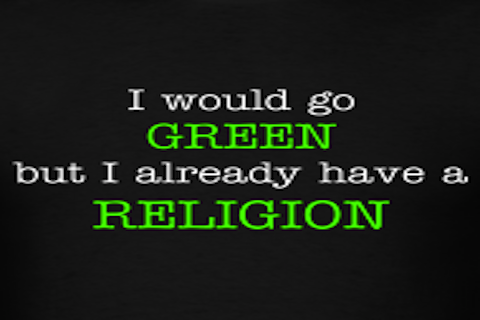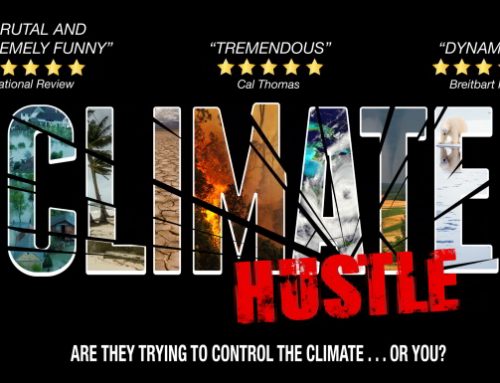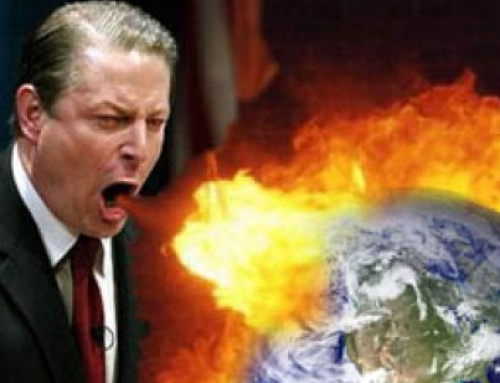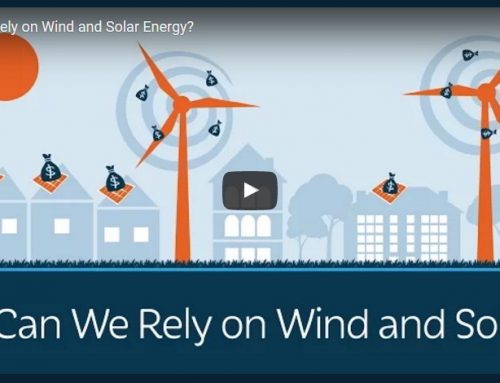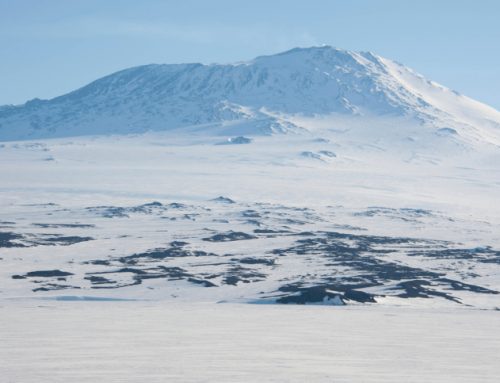People deeply committed to belief in man-made global warming form a cult that has “all the trappings of religion,” according to an Oct. 24 column on Realclearpolitics.com by Michael Barone. He is a leading political scientist, Fox news commentator, and resident fellow at the American Enterprise Institute.
He sees these similarities:
- Concept of original sin: Mankind is responsible for global warming and the disasters it will cause.
- Need for atonement and repentance in the form of carbon taxes or cap-and-trade system.
- Ritual such as the annual Earth Day and weekly recycling.
- Indulgences, where people can buy carbon offsets to avoid punishment for carbon-emission sins.
(Barone didn’t mention other parallels, such as priests and saints in the persons of Democratic politicians, journalists, and activists, or the intolerance that many warmers display toward nonbelievers. The religious nature of many liberal causes struck me 40 years ago, when I was a speechwriter in the electric power industry. I researched a talk then—never given—on the “religion” of environmentalism. A case can be made that doctrinaire liberalism as whole is a kind of religion.)
Barone wrote:
Corporate elitists, like General Electric’s Jeff Immelt, profess to share this faith, just as cynical Venetian merchants and prim Victorian bankers gave lip service to the religious enthusiasms of their days. Bad for business not to. And if you’re clever, you can figure out how to make money off it….
(T)he global warming clergy has preached apocalyptic doom—and is now facing an increasingly skeptical public. The idea that we can be so completely certain of climate change 70 to 90 years hence that we must inflict serious economic damage on ourselves in the meantime seems increasingly absurd….
“Skepticism has been increased by the actions of believers….Disclosure of the Climategate emails in November 2009 showed how the clerisy was willing to distort evidence and suppress dissenting views in the interest of propagation of the faith….
“In recent years, we have seen how negative to 2 percent growth hurts many, many people, as compared to what happens with 3 to 7 percent growth. So we’re much less willing to adopt policies that will slow down growth not just for a few years but for the indefinite future.”
The crushing economic burden that the warming faith would impose on the world is elaborated in an unsigned Oct. 25 Wall Street Journal article online titled “The Post Global Warming World: Moving on from Climate Virtue” (available only to subscribers). The article says “the cost of meeting (the European Union’s) current carbon emissions targets—a cut of at least 20% of 1990 emissions levels by 2020—comes to at least €48 billion ($67 billion) per year.”
The Wall Street Journal article concludes:
The science on climate change and man’s influence on it is far from settled. The question today is whether it makes sense to combat a potential climate threat by imposing economically destructive regulations and sinking billions into failure-prone technologies that have their own environmental costs. The earnest people going to (the United Nations annual climate-change conference next month in Durban, South Africa) may think so. The rest of the world is wearier and wiser.

